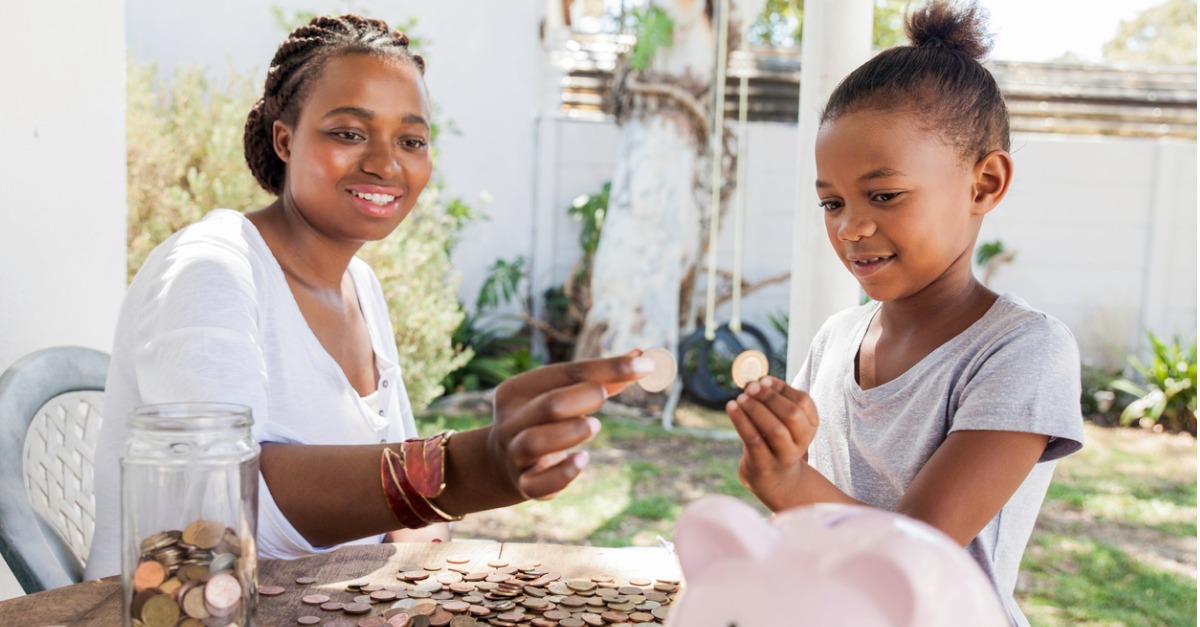Raising your kids to be adults who can successfully navigate through life is the end goal of parenting, and a big part of that responsibility centers around teaching them about money so that they’re financially independent as they transition from childhood to adulthood.
Here are some of the best money skills to teach your children:
Explain that everything costs money. This basic concept is one that some people forget. Everything you buy costs money, whether you pay for it now with cash or later with a credit card or loan.
Thirty-eight percent of U.S. households had revolving credit card debt in 2018, according to the National Foundation for Credit Counseling. Revolving credit is debt that’s moved from month to month and paid off over time with interest and possibly even late fees. This is in direct opposition to credit card users who pay off their purchases each month and avoid interest charges.
Take your children shopping with you—for groceries, clothes, furniture and everything else—and show them that things cost money.
Teach them to save. A clear jar for spare change can be a simple way to show children how to save money as they can physically see the money increase daily.
When they get money for birthdays or earn an allowance, open a savings account in their name and show them how to deposit money in it regularly. If they’re old enough to understand it, teach them how compound interest works and how regular deposits and interest paid on their account can increase their savings.
You don’t have to go over the numbers with them but explain how you save money each month for retirement, emergency expenses, vacations and other long-term goals.
Give them the opportunity to work for an allowance. Set up an allowance—usually equal to their age—for weekly chores. This will help show children that they can get paid for working, then use that money to buy things or save for something later.
If you don’t think an allowance is a good way to get your child to do chores, take the time to explain the importance of everyone contributing to how the house is taken care of and how important it is that everyone work together to get chores done.
Teaching them some responsibility, whether with an allowance or not, can help them learn skills they will undoubtedly need as adults.
Show them the importance of a sound budget. If you don’t have a household budget, having kids may be a good incentive to start one. You can show them your monthly expenses, as well as income, and explain how both should be equal to make your finances work well.
Make sure your children understand that not having a sound budget that can be adhered to may cause them to go into debt in order to pay some bills, or having to cut costs because they can’t afford everything they want. If you don’t want to show your children your income, at least explain how your bills work.











